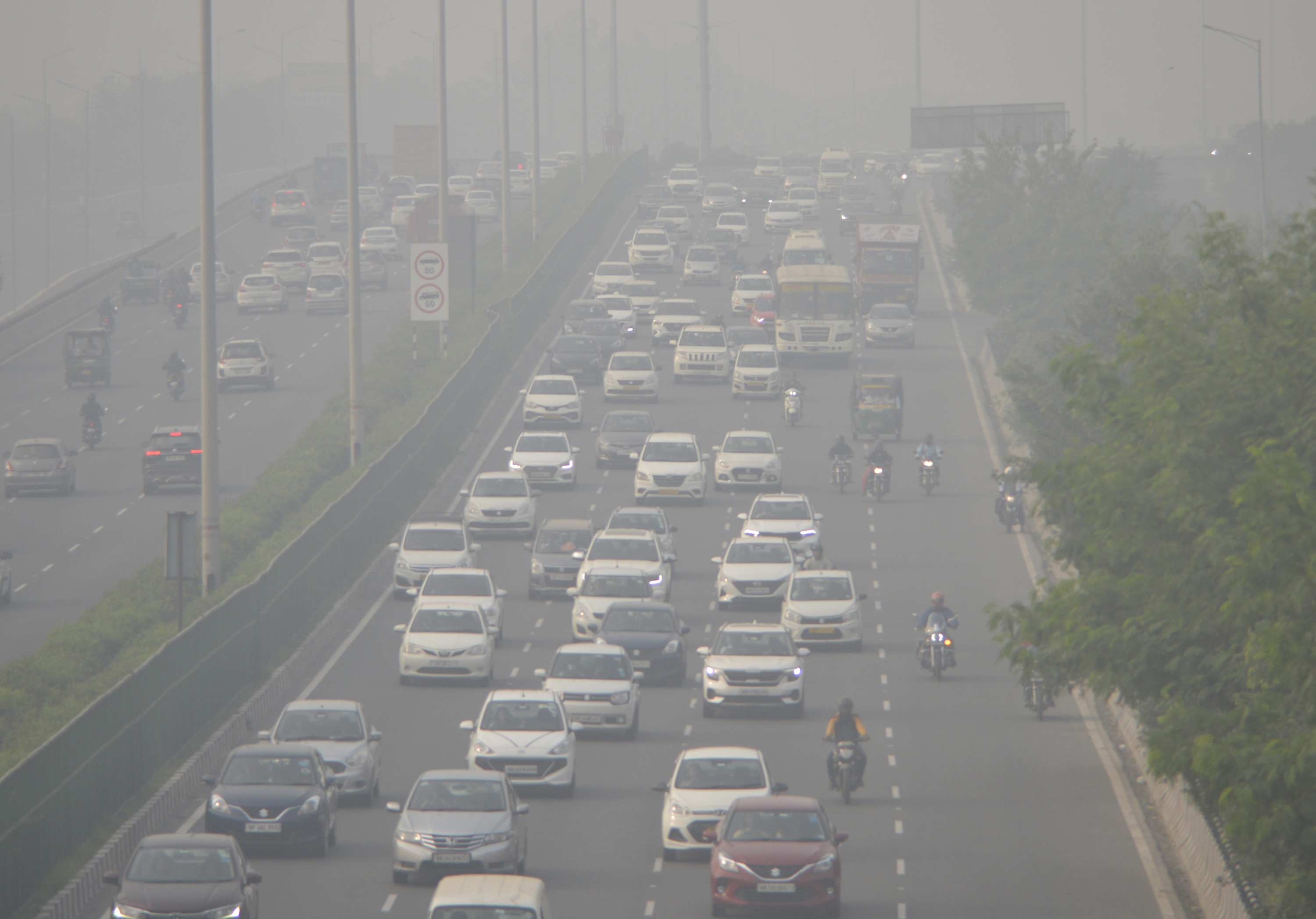NEW DELHI: The problem of air pollution is not new to Delhi, however, there has been a rise of young patients and teenagers in the present scenario. The daily cases have been increasing by 25% to 30% with usual symptoms of dry cough, watery eyes, runny nose, and so on. Experts claim that in the next few weeks, the problems are going to be exacerbated, particularly in November and December. The sales of anti-allergy medicines and cough syrups have also increased in medical shops.
“We are seeing an increasing number of young patients, children above 5 years to 6 years. They come with cough, fever, eye irritation, runny nose, and other symptoms. Cases of allergy and lung infection have increased significantly. There have also been rising cases of asthma. The daily increase in patients is around 25%-30%,” Dr Akshay Budhraja, Pulmonologist at Aakash Healthcare Super Specialty Hospital, Dwarka, told The Sunday Guardian.
As reported by SAFAR-India, the AQI of Delhi remains to be in the “severe” category. As a result, e primary schools in Delhi would be shut from Saturday. Similarly, the outdoor activities of Class 5 and above have also been restricted. The symptoms are quite common during early mornings and late evenings. An AQI above 400 is considered under the “severe’ category. Patients show symptoms of dry cough, throat irritation, nausea, and fatigue, along with respiratory-related issues like allergic bronchitis, pneumonia, COPD, acute attacks of asthma, and so on.
Prof Dr S.K. Chhabra, Head, Department of Pulmonary, Sleep and Critical Care Medicine at Primus Hospital, Chanakyapuri, said that there are two types of patients: those with heart disease who are affected by pollution and those who have never had heart disease, but are exhibiting pollution-related symptoms (itchy nose, watery eyes, cough). Explaining further, he said, “We have two kinds of patients—one is asthma, COPD (lung and heart disease). The number of patients coming to OPDs and emergencies has increased. Patients with asthma and COPD are using their inhalers often. Patients having heart disease are more subjected to heart pain. Another group seems normal but when they travel outdoors, they have irritation on the upper part of the chest and have a cough, nose itching, and watery eyes. The symptoms worsen during the daytime.”
Such a rise in pollution leads to the rise of cardiovascular problems that affect the kidneys. To this correspondent, Dr. Manisha Dassi Nephrologist, Max Hospital, told, “Pollution also leads to the progression of kidney diseases, but this progression happens slowly which is not directly parallel to the symptoms of pollution that the patients come up with. However, over a period of time, it gets explicit.”
“There is no direct relation but the kidney gets affected due to the poor cardiovascular system. Air pollution doesn’t affect the kidneys but it affects the kidneys through the cardiovascular system as there is a link between heart diseases and kidney problems,” Dr Chhabra added.
Normal masks are of no help and only N-95 masks and P-100 respirators are recommended. Environment Minister Gopal Rai has advised that 50% of the Delhi government staff work from home. Meanwhile, the Delhi government has also asked the Centre to help Delhi overcome the pollution problem. The Commission for Air Quality Management has also prohibited the use of diesel-powered four-wheelers in Delhi due to the worsening air quality. As of Friday, 2:30 pm, SAFAR-India reports the PM10 AQI is 451 (above 430) and PM2.5 is 287 (above 250) in Delhi, considered to be under the “severe” category.
Air pollution affecting the young the most
- Advertisement -

